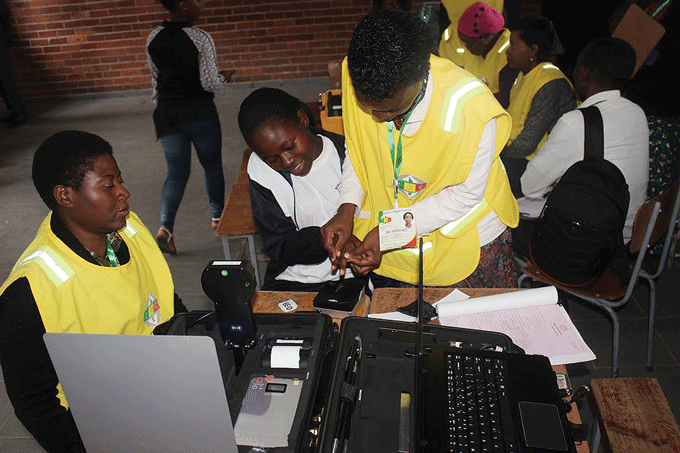
By Brighton Taruberekera THE Zimbabwe Electoral Commission (Zec)rolled out the second phase of the biometric voter registration (BVR) process on the 11th of this month. After registering approximately 80 000 new voters in the first phase, the election management body is this time around targeting registering 500 000 voters in the second phase, which lasts until end of this month. While Zec is seized with the voter registration exercise, the Home Affairs ministry, through the department of Civil Registry is on a civil registration blitz, ensuring that citizens have civil registration documents such as birth certificates as well as national identity cards.
Government agencies and civil society groups have been at the forefront of encouraging people to register to vote and come election day, turn up and vote. Voting is crucial for many reasons. This article sets out to highlight why it is important for citizens to register and turn up to vote.
Voting is your constitutional right
Chapter 4 of the Constitution of Zimbabwe, Declaration of Rights, provides for individuals and citizens’ fundamental human rights. Section 67(3) of the Constitution states that every Zimbabwean citizen who is of or over 18 years of age has the right to:
- Vote in all elections and referendums to which this Constitution or any other law applies, and to do so in secret; and
- Stand for election for public office and, if elected, to hold such office.
The right to vote, and by extension to be voted into office, carries the same weight as any other right enshrined in the Constitution. However, for citizens to be able to enjoy this right, they need to be registered.
Supporting democracy
There are plenty of definitions and arguments with respect to what democracy is or should be. Notwithstanding the various notions and definitions, at the heart of democracy lies the will of the people. Article 21 of the United Nations’ 1948 Universal Declaration of Human Rights, states that: “The will of the people shall be the basis of the authority of government.” Democracy has a lot to do with the people’s will and that will is best expressed through elections, hence it is very important that citizens register and turn up to vote.
In most countries in Africa and across the globe, voting is a right that came through sacrifice and struggle. In some cases, national independence and the right to vote came through the barrel of the gun. Voting can be a demonstration of support for those who toiled hard for democracy.
- Chamisa under fire over US$120K donation
- Mavhunga puts DeMbare into Chibuku quarterfinals
- Pension funds bet on Cabora Bassa oilfields
- Councils defy govt fire tender directive
Keep Reading
Securing your best interests
Voting allows citizens to elect leaders who will represent their best interests. It is a way of participating in the governance of your locality. Through voting, citizens elect leaders to represent them and their ideas, and ideally, leaders are expected to work towards furthering the citizens’ goals. It is by way of voting that citizens can elect leaders, express their judgments on previous officials’ performance, and their views on public topics.
Voting is a form of self-expression
Elections are decided by the people who go out and vote. If you don’t vote, someone else will make the decision for you. Your power is in your vote. You have the power to decide on the quality of life you want for yourself and future generations. Voting is your chance to stand up for the issues you care about like public transportation, minimum wage, service delivery among other key governance issues. Voting gives you a chance to make a positive impact and help your community or country.
After all is said and done, voting is optional and people can decide to vote or not to. What leaders, government agencies and civic society groups can only do is encourage people, spread the message and ensure a conducive environment for citizens to freely express their will.
- Brighton Taruberekera is a political and development consultant, writer and researcher. He writes here in his personal capacity.











